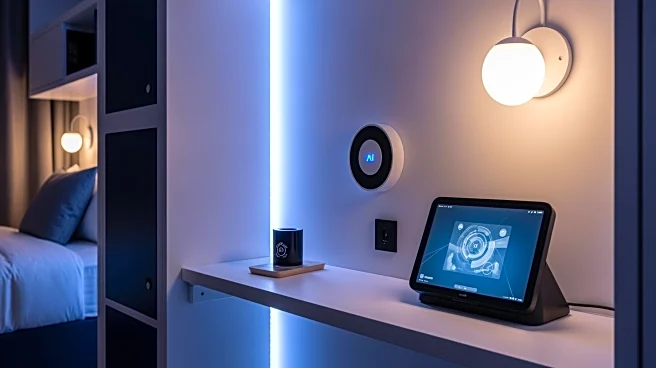What's Happening?
The hospitality industry is witnessing a shift as hostels, traditionally seen as budget accommodations, are now at the forefront of innovation. This change is driven by their adoption of advanced technologies and flexible operational models. Hostels like
Clink are utilizing AI-powered platforms such as D3x for customer support, which has significantly reduced response times and improved guest satisfaction. The integration of technology in hostels is not limited to AI; they are also employing systems like Mews for operational management, which allows for mobile ordering and automated check-ins. This technological advancement is coupled with a cultural shift within hostels, where there is a greater openness to sharing challenges and solutions among operators, fostering a collaborative environment.
Why It's Important?
The innovations in hostels are significant for the broader hospitality industry, particularly hotels, as they highlight the growing importance of technology in enhancing guest experiences. The younger, tech-savvy demographic that frequents hostels today will be the hotel guests of tomorrow, bringing with them expectations for digital convenience and efficiency. Hotels can learn from hostels' flexibility and openness to technology, which are crucial for staying competitive in a rapidly evolving market. By adopting similar technologies and operational strategies, hotels can improve their service delivery and meet the demands of future guests, ensuring long-term relevance and profitability.
What's Next?
As hostels continue to innovate, hotels may increasingly look to them for inspiration in adopting new technologies and operational models. The trend towards AI and digital solutions is likely to accelerate, with more hotels integrating these technologies to enhance guest experiences. This shift may also lead to a reevaluation of traditional metrics like RevPAR, as hotels begin to consider revenue per guest and other holistic measures of success. The hospitality industry as a whole may see a blending of hostel and hotel practices, leading to a more unified approach to guest service and experience.
Beyond the Headlines
The adoption of AI and flexible models in hostels also raises questions about the future of employment in the hospitality industry. As automation becomes more prevalent, there may be shifts in job roles and the skills required for hospitality workers. Additionally, the cultural openness and collaboration seen in hostels could influence corporate cultures in larger hotel chains, potentially leading to more innovative and agile business practices.















